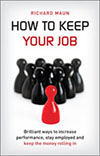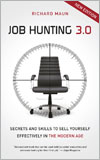better business blog
Tips and stories to add value to you and your organisation

Why Lots Of New Hires Fail
Have you ever had a bad job interview?
Perhaps you had one, like me, where the Managing Director told me that although there were 20 days of holiday available, I wasn’t expected to take any. His view was that:
A. Staff were expected to work, and…
B. Business trips counted as mini holidays anyway.
Naturally, I wisely declined the job. I also had no experience and wasn’t much interested in his business. He did like me though as I answered all of his questions with a cheery smile and an apparent willingness to do anything. I was of course, lying.
I was young then and treated job interviews as a sort of game, to see how far I could get. Luckily even I could see that his attitude was not conducive to a happy working life and I played along until I’d had enough.
I wouldn’t do that now and when I’ve been offered a job by a client I smile and ask them if they really want me in their business 5 days a week, making changes and challenging their thinking? They don’t, and we agree that hiring me for a day of intense coaching once a month is plenty for the both of us.
This is one of the basic problems when hiring people. Managers tend to hire people they like, or who are similar to them. They resist putting in the hard yards, hiring someone they need and then celebrating differences and providing solid leadership.
They take the easy option and despair when their new hire doesn’t work out.
People need to be nurtured and not left alone to work it out for themselves.
They need a proper induction period, clear objectives and the opportunity to learn their role.
They also need to have the right attitude. So many people get hired for their skills and then don’t fit in with the organisational culture.
We need to hire for attitude and train for skills. The right person, with the right mindset, can be a real asset. They can grow with the business, take on new challenges and constantly add value.
I’ve coached many people who are struggling in their role and often it’s because of a failure of leadership, not because of their abilities.
So then, I have a suggestion. When we are hiring a new person we can think in terms of money.
How much is the hiring process costing us?
How much will the new employee actually cost us for 3 years of labour?
Salary, taxes, pension, holidays, equipment, corporate overhead costs and management time all need to be factored in.
Once we have the number, and a rough guide would be that actual cost is 1.5 times the basic salary, then we can set up a spreadsheet to track our financial investment on a daily basis.
If we can see the cost ticking up every day then we will remain in awareness. We will be able to ensure that we are providing leadership and support, to ensure we maximise the return on our investment.
If we all had a money-cost counter on our desks then the senior leaders could see how much they are wasting, by knee-jerk hiring decisions, or simple neglect of new employees.
New hires fail because they are set up to fail.
They’ve either survived a lacklustre recruitment process (not their fault), or been treated without due care by their leaders (still not their fault).
If we track the money we spend then we can make sure we are spending the money wisely.
I’ll bet that most people know a manager who puts more effort into a new dog than into a new person.
The next time we are tempted to grumble about a new employee that we’ve hired we must stop and ask ourselves:
What’s my part in this problem?
Where have I fallen down?
What do I need to change, in order to stop wasting money?
Setting people up for success is really very simple. We need to care about them, care about our investment and care about our business.
What could you do differently this week, to care for someone new in your organisation?
Next week: Counselling For Free
e-publishing
Click icon for details


recent posts
browse archive
books
Click cover to view details on Amazon

How to Keep Your Job
Brilliant ways to increase performance, stay employed and keep the money rolling in
Published 2011 Marshall Cavendish
208pp

Job Hunting 3.0
Secrets and skills to sell yourself effectively in the Modern Age
Published 2010 Marshall Cavendish
260pp

 RSS
RSS


